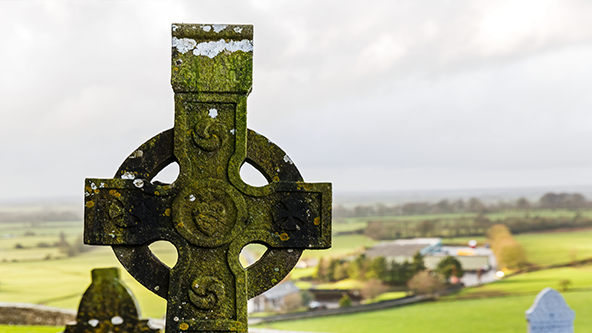Irish Wakes: What to Know Before You Go

An Irish wake, a deeply rooted tradition in Ireland and cherished among families of Irish descent, is a unique blend of mourning and celebration. For those unfamiliar with this lively and emotional event, here's a comprehensive guide on understanding, participating, and embracing the experience.
Honor the Departed
Typically spanning one to three days before the funeral, an Irish wake unfolds at the funeral home, with the deceased often presented in an open casket. To actively participate, approach the casket to pay respects, share prayers, expressions of love, and even place personal mementos within. It's important to note that some items may be unsafe for cremation, so consult these guidelines.
You don’t have to visit the open casket if you prefer not to. Irish wakes are about honoring the memory of someone special and bringing comfort to their family. Here are a few suggestions for what to say to grieving family and friends:
- "I'm so sorry for your loss. [Name] will be missed by so many."
- "I’m thinking about the good times we had with [Name]. They brought so much joy into our lives."
- "I'm here for you, whether it's a shoulder to cry on or someone to share stories with. Just let me know."
- "You don't have to go through this alone. We're a team, and I've got your back."
Toast Their Memory
The wake schedule involves a visit to the funeral home in the late afternoon, followed by a break for dinner at a nearby bar or restaurant. Libations flow freely during this interval, with beer, wine, cocktails, and Irish whiskey often on the menu. Use this time for storytelling, toasts, and bonding over shared memories.
Toasting is a significant part of Irish wake traditions. The toasts often celebrate the departed's life, honor their memory, and comfort the grieving family. Here are some examples:
- "Here's to [Name], may their soul rest in peace. Let's raise a glass to a life well-lived, filled with love, laughter, and unforgettable moments."
- "To [Name] and their Irish spirit. May they find eternal joy in the arms of the angels. Sláinte!"
- "To love, laughter, and the incredible bond we shared with [Name]. May their love continue to guide and inspire us."
- "A toast to the tears we shed, the memories we hold dear, and the love that will forever connect us to [Name]."
Experience a Whirlwind of Emotions
Irish wakes are renowned for their emotional richness, where laughter and tears intertwine. While it may seem surprising to hear mourners sharing funny stories and cracking jokes, this is a cherished part of the tradition. The Irish celebrate the deceased person's life, emphasizing their personality, achievements, and the joy they brought to others.
Pray for Spiritual Comfort
Many Irish families adhere to the Catholic or Christian faith, making prayers integral to the wake. A priest may visit, leading mourners in prayers or guiding them through the Rosary, a Catholic devotional practice. Respect for these rituals is crucial, even if they are unfamiliar. The fusion of laughter, tears, and prayer creates a unique atmosphere that aids healing.
How Wakes Began
The historical roots of Irish wakes are shrouded in various theories, drawing inspiration from ancient Jewish customs and beliefs in the potential for revival. One interpretation links the term "wake" to the tradition of vigilantly guarding the body until its burial, ensuring a watchful presence over the deceased. Another perspective suggests that mourners wanted to safeguard that their loved one was dead and not in a deep sleep brought on by lead poisoning from pewter goblets.
While their origins may be steeped in ancient practices and superstitions, contemporary Irish wakes have become a source of comfort and support, offering a space for mourning, reminiscing, and healing. The evolution of this tradition underscores its adaptability and enduring significance in providing solace to those grieving the departure of a cherished family member or friend.
Irish Wakes and Cremation
There are no right or wrong ways to honor a loved one’s memory. You may have an Irish wake, visitation, and traditional funeral or opt for simpler, equally meaningful options. In today’s Irish-Catholic families, there's a growing acceptance of cremation. The choice between burial and cremation is a personal one, reflecting changing attitudes towards the afterlife. The most important thing is honoring their beliefs in a way that feels authentic to the loved ones left behind.